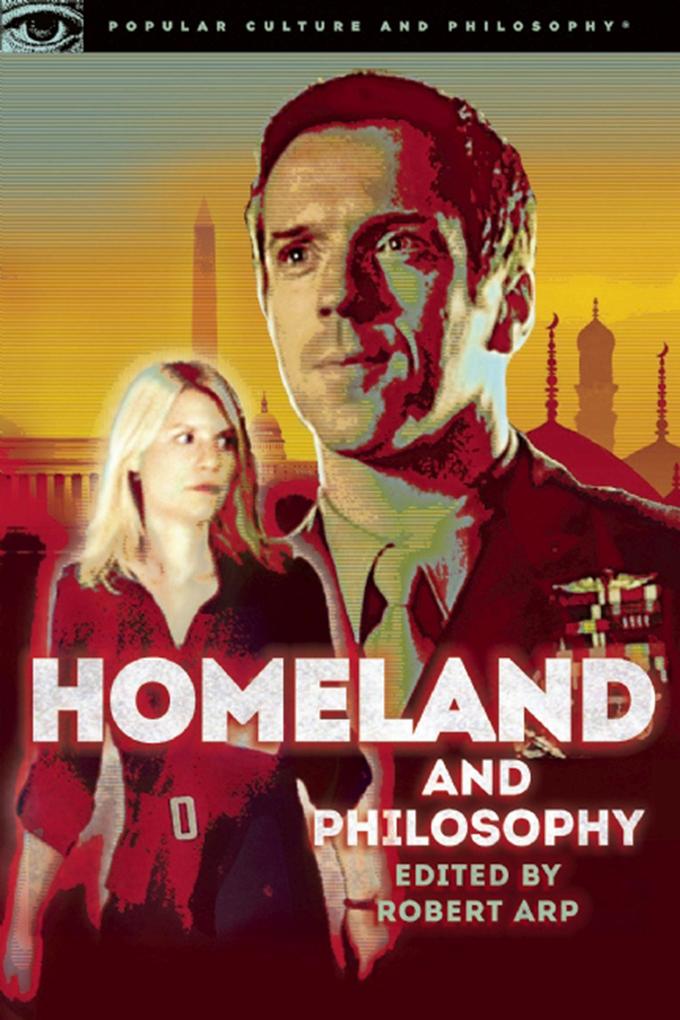
Zustellung: Do, 12.12. - Di, 17.12.
Versand in 2 Wochen
VersandkostenfreiBestellen & in Filiale abholen:
In Homeland and Philosophy, 23 philosophers tackle the issues that Showtime's award-winning show Homeland asks us to consider. The drama, which centers on Marine Sergeant Nicholas Brody's release from an al-Qaeda prison, and CIA Agent Carrie Mathison's distrust of his intentions, asks questions of identity, what it means to be a terrorist, the conditions and effects of brainwashing, lying for the greater good, and whether or not courage is a virtue.
Inhaltsverzeichnis
A. Introduction
1. Turning Inward Against Oneself, What Does One See? The Morality of Suicide
2. Drones over the Homeland - Too Close to Home?
3. Brainwashing, Buttons, and the Moral Responsibility of Sergeant Brody
4. Homeland and the Value of Liberal Democracy
5. The Myth of Religious Violence
6. What Makes the Nation-State Worth Killing For?
7. Is Brody a Real Muslim?
8. Terrorism
9. Otherness and Demonization
10. The Dream of Freedom?
11. Love and Loneliness in Homeland
12. Privacy, Security, and the Ethics of Surveillance
13. "Homeland" and Practical Identities
14. The Traumatized Nick Brody: PTSD and the Philosophy of Personal Identity
15. Would you trust Carrie Mathison? Trust, Self-Trust, and Identity in "Homeland"
16. Personal Identity in Homeland
17. Women in Homeland
18. Enhanced Interrogation Techniques
19. Susan Neiman and the Problem of Evil
20. Kant on Drones
21. The Theater of Deceit
22. Personhood in Homeland
23. Just Because You Are Paranoid Doesn't Mean They Aren't Out To Get You
B. About the Authors
C. Index
1. Turning Inward Against Oneself, What Does One See? The Morality of Suicide
2. Drones over the Homeland - Too Close to Home?
3. Brainwashing, Buttons, and the Moral Responsibility of Sergeant Brody
4. Homeland and the Value of Liberal Democracy
5. The Myth of Religious Violence
6. What Makes the Nation-State Worth Killing For?
7. Is Brody a Real Muslim?
8. Terrorism
9. Otherness and Demonization
10. The Dream of Freedom?
11. Love and Loneliness in Homeland
12. Privacy, Security, and the Ethics of Surveillance
13. "Homeland" and Practical Identities
14. The Traumatized Nick Brody: PTSD and the Philosophy of Personal Identity
15. Would you trust Carrie Mathison? Trust, Self-Trust, and Identity in "Homeland"
16. Personal Identity in Homeland
17. Women in Homeland
18. Enhanced Interrogation Techniques
19. Susan Neiman and the Problem of Evil
20. Kant on Drones
21. The Theater of Deceit
22. Personhood in Homeland
23. Just Because You Are Paranoid Doesn't Mean They Aren't Out To Get You
B. About the Authors
C. Index
Mehr aus dieser Reihe
Produktdetails
Erscheinungsdatum
04. November 2014
Sprache
englisch
Seitenanzahl
288
Reihe
Popular Culture and Philosophy, 85
Herausgegeben von
Robert Arp
Verlag/Hersteller
Produktart
kartoniert
Gewicht
422 g
Größe (L/B/H)
230/151/20 mm
ISBN
9780812698572
Entdecken Sie mehr
Bewertungen
0 Bewertungen
Es wurden noch keine Bewertungen abgegeben. Schreiben Sie die erste Bewertung zu "Homeland and Philosophy" und helfen Sie damit anderen bei der Kaufentscheidung.


































